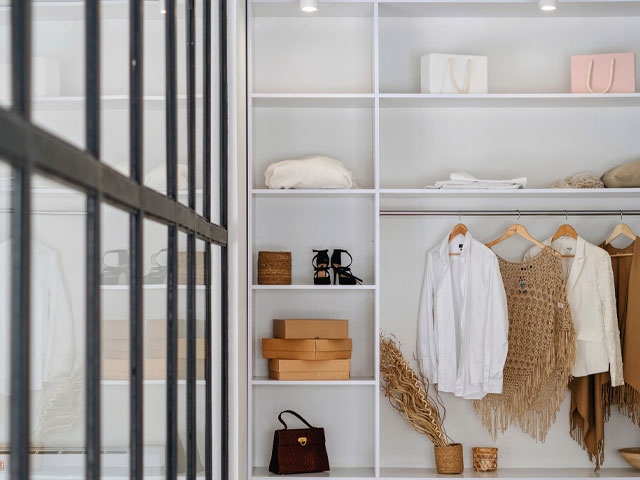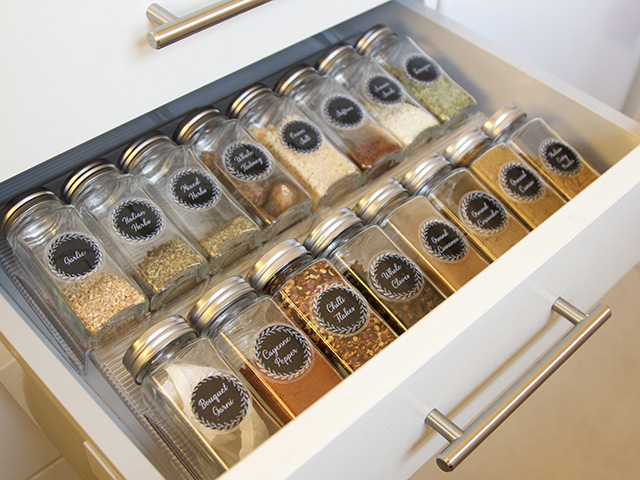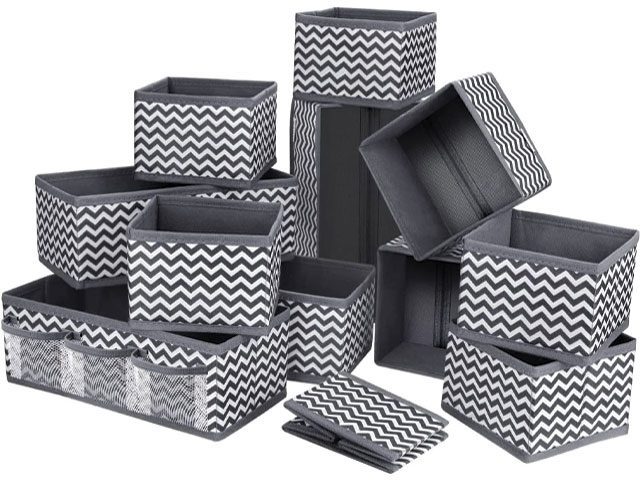
Image credit: Olena Sergienko/Unsplash
Decluttering tips: 7 ways to streamline your home
Taking some time to declutter your house? These expert decluttering tips from Lizzie Grant, founder of Declutter on Demand, will help you to organise, streamline and tidy your home ready for a new year…
1. Focus on what you want to achieve
The key to deciding where to start decluttering is to focus on why you want to declutter. Living in a disorganised and cluttered home can really take a toll on your energy levels and headspace – you may want to feel more organised when working from home, create a space where you can truly relax in the evenings or just want to feel less stressed when trying to find things. Whatever your reason, asking yourself what you want to achieve will mean that your decluttering projects will really make the most difference to your daily life.
View this post on Instagram
2. Have a donation station
Before you start decluttering, designate a space in your home where your unwanted belongings can live temporarily until you have time to get them out of your home – this is your ‘donation station’. What you do not want to do is to create a load of mess while decluttering so it becomes stressful to live in. If you live in a bigger property, this area could be in a basement, attic, garage or a spare room. If you live in a smaller property, this could be an under-stairs cupboard or the space behind a sofa or under a bed. Ensure that items are stored in labelled bags so you remember that they are supposed to be leaving your home. It is easy to forget!
Read more: 6 of the best storage solutions for decluttering
3. Pick your decluttering project wisely
With decluttering, things often get messy before they get organised. It is important to really consider the types of decluttering projects to begin and when, so that you don’t end up feeling overwhelmed. Break tasks down into small steps so you can fit them around work, social engagements and other tasks in your diary. Here are a few ideas for decluttering tasks to tackle:
- Paperwork, magazines and newspapers: Shred unwanted confidential paperwork, recycle non-confidential paperwork and either file hard copies or digitise paperwork you want to keep.
- Digital files: Set up digital filing systems, reduce emails and back-up files.
- Photos: Organise both hard copies and digital copies. Take the time to share fond memories with family and friends at the end of each organising session as it will help you all beat the January blues.
- Memory boxes: Each person in your household should have a dedicated box to contain sentimental items that they want to keep, but do not want on display.
- Electricals: Sort out muddled, miscellaneous cables and electrical appliances and label them so you know which cable goes with which device.
- Toiletries: Dispose of and recycle those that have expired and donate unused, in-date toiletries to your local food bank.
- Food and kitchenware: Let go of expired foods, organise your fridge and freezer and declutter your crockery and appliances.

Photo: @DeclutteronDemand
4. Keep, sell, donate or bin?
When sorting through your belongings, divide them into the following four piles:
- Keep
- Sell
- Donate/give away for free
- Bin/recycle
Pick up and examine each item and decide which of the above piles it belongs to. Ask yourself whether you love it and/or use it and what value it is adding to your life. Say the reason out loud. Watch out for answers featuring the common mantra, ‘just in case’!
We often keep things for negative reasons, like the fear of regretting to let go of something. It can be easy to hold on to unnecessary things with this attitude. Be realistic about the space in your home and the things you want to surround yourself with. Lighten the load by giving yourself permission to let go of things you do not really need. You will usually be able to borrow or buy a replacement if you later need something you decluttered.
When donating, a trip to the charity shop is usually the easiest way to go, but if there isn’t one nearby, or you don’t have a car, there’s a risk that your ‘donation station’ may become permanent! Some charities accept donations by post – just request a free postage label (Shelter and the British Heart Foundation offer this service). You can also give away or sell things to your neighbours via Next Door, Freecycle, Olio and Facebook Marketplace.
For tricky-to-recycle items like textiles, electronics, batteries, mobile phones and carrier bags, use recyclenow.com to find your nearest recycling points. And, of course, check your local council’s website before making a trip to the tip – you may need to make an appointment for larger items.
Read more: Marie Kondo’s top tips on decluttering and tidying
5. Make some money
There are lots of ways to sell pre-loved belongings and make a bit of extra money. If you have furniture or ornaments, put these up for sale on Shpock. You can contribute to the circular fashion model by selling your high street clothes on an app like Vinted (use Depop if they’re particularly trendy), or use a luxury resale site such as Vestiaire Collective for designer clothes. You can even resell handbags via Selfridge’s resale site or artwork, handbags, watches and other collectibles from prestigepawnbrokers.co.uk (as seen on Channel 4’s Posh Pawn).
Be realistic about what price your second-hand things will fetch with a quick online search to see what similar items sell for. Set yourself a deadline by which to sell and if they remain unsold when this date passes, donate them instead. Value your time and decide whether it is worth selling something for a small amount. You may be better saving yourself time and energy and brighten someone else’s day by giving that item away for free instead.
6. Organise your space
Once you have decluttered, decide how best to organise the belongings you are keeping. Try to store items near to where you use them and group similar things together in labelled boxes and containers. This makes it easier for everyone in the household to remember where things belong. You do not necessarily need to go out and buy lots of storage solutions – think about whether you have any spare boxes in your home that can be reused first. Sometimes the right product does make all the difference and the two organising products our clients find most useful are shelf dividers to make the most of shelf space and drawer dividers to categorise and organise objects.
Read more: 6 of the best storage solutions for decluttering
7. Maintain changes long-term
Think about what happens when items come into your home. For example, what happens to the post when it comes through your letterbox – does it pile up on surfaces? It is useful to have dedicated areas for these kinds of items, such as a letter tray for incoming envelopes. Decluttering can also help make us more aware of how and why we buy things. Reducing what we buy is easier said than done but makes a real difference long-term to clutter in our homes. Before you buy something, ask yourself where it will live in your home. This can make you think twice before buying, or at least motivate you to let go of some items to make space for it. This will help keep your home organised and free from clutter for longer.
RELATED ARTICLES
- Decluttering tips for a successful spring clean
- 6 of the best storage solutions for decluttering
- 5 cleaning caddies to tidy up your routine





